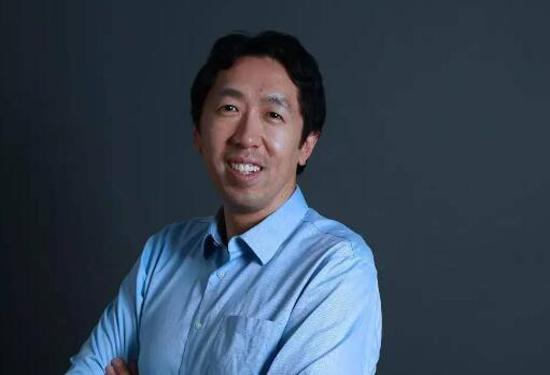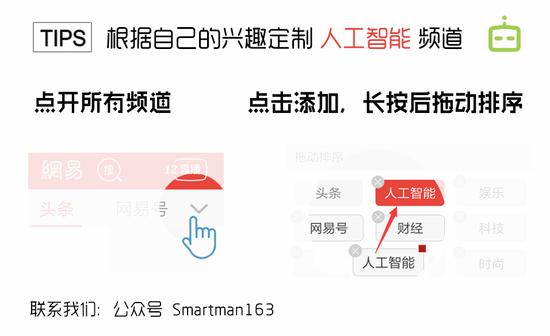
[NetEase smart news June 6 news] Andrew Ng (Andrew Ng) is one of the most important thinkers in the field of artificial intelligence. It is responsible for Google's "Google Brain" project, which aims to develop deep learning algorithms. In 2011, he led the development of the Stanford University's Large Open Online Course (MOOC) platform. More than 100,000 students register for their machine learning courses. Wu Enda also cooperated with some of the top universities in the world to launch Coursera, a high-quality online course. Today, Coursera is the largest MOOC platform in the world. Recently, he is responsible for Baidu's artificial intelligence team.
Under his leadership, Baidu has become one of the few artificial intelligence companies in the world, covering a wide range of expertise in speech, neuro-linguistic programming, computer vision, machine learning, and knowledge mapping. The team led by Wu Enda created two new business units for the company: the autopilot business unit and the DuerOS conversational computing platform.
In late March, Wu Enda announced his departure from Baidu. In an article, he pointed out that “Baidu’s artificial intelligence technology is very powerful and the entire team is very talented; I believe that Baidu will continue to thrive.†“After leaving Baidu, I am very We are pleased to continue to commit to the transformation and development of artificial intelligence in the entire society and the universal use of artificial intelligence so that everyone can lead a better life.â€
I can't help but be curious about its next plan, so I visited his office at the Gates Computer Science Building at Stanford University. Considering how much influence his career has so far, I'm curious where he will turn his energy. We also talked about his suggestions for some companies that have entered the field of artificial intelligence, the roles of some chief artificial intelligence leaders, and the industries most likely to be affected by artificial intelligence. He also talked about the comparison between the United States and China’s business culture. topic.
Peter High: You have left Baidu. So where will your career go?
Wu Enda: In the past few years, artificial intelligence technology has achieved success. We can now do a lot of things, and these things were completely impossible three or four years ago. This has created huge opportunities for large technology companies such as Baidu, Google, Facebook, and Microsoft. It also creates opportunities for small technology teams, whether they are for-profit or corporate or nonprofit, or startups, to do meaningful work.
Just as electricity and the Internet have changed everything in the world, artificial intelligence will change everything in the coming decades. At the same time, I am also studying some similar ideas to explore new artificial intelligence services. I am excited to find ways to support the global artificial intelligence community so that people around the world can obtain the knowledge and tools needed to develop artificial intelligence.
Peter Gao: Artificial intelligence is a broad topic. Which areas are the most exciting for you and have the greatest opportunities in the short term?
Wu Enda: People often ask me, "Andrew, what industry do you think artificial intelligence will change?" I usually say that it is easier to think about what industry will not change. To be honest, I can hardly imagine which one will not be changed. For example, I pointed out in a meeting that I said maybe the barber's job may be safe because I don't know how to develop a hair-cutting robot. But one of my friends was a robot professor. She stood up from the audience and pointed her finger at my head. "For most people's hairstyles, I agree with Andrew's point of view. We cannot create a universal haircutting robot. But I can completely develop a robot that can cut a specific hairstyle."
It's hard to imagine that an artificial intelligence will not change which major industry. This includes various industries such as healthcare, education, transportation, retail, communications and agriculture. Artificial intelligence can make a huge difference in all these industries, which is surprising but irrefutable. I heard you say, Peter, sometimes you think this is a very distant thing, but in fact it is on the horizon. I think a lot of work is being done to achieve this goal. Of course, the most keen CEOs and CIOs, and perhaps some new chief AI leaders, are accumulating the necessary talents and tools, or are already using these tools to reshape their business.
Peter Gao: What advice do you have for CEOs, CIOs, and chief artificial intelligence officers who are exploring artificial intelligence early on?
Wu Enda: In the rise of new technologies, such as electricity development about 100 years ago and the rise of the Internet 20 years ago, many organizations began hiring a leader to screen new technologies and find out how to integrate them into their organizations. Methods. Power technology was complicated 100 years ago. There were AC and DC power at that time, you could buy power from different companies, and you needed to measure reliability and power costs. Do we want to install electric motors or a combination of electric motors and lighting systems? And companies must make similar decisions. CEOs do not know how to solve the power problem, so they hired an expert, a vice president of the power company to solve problems for them. Nowadays, electricity has been commercialized and reliability has been continuously improved. Therefore, this role is no longer needed. Twenty years ago we saw the rise of the chief information officer who was specifically responsible for handling Internet and computer information.
Similarly, artificial intelligence is also a powerful and complex technology. The success or failure of CEOs to achieve AI throughout the organization will depend on their ability to hire an effective leader to accomplish this task. In some companies, the chief information officer or chief data officer is playing this key role.
A few months ago, I wrote an article titled "Hiring Your First Chief Artificial Intelligence Officer" and provided some specific suggestions. Artificial intelligence technology is exciting, but it is not mature. I'm bold enough to take the world seriously, but artificial intelligence technology is useless in isolation. It needs to be customized to match it with your business philosophy. To do this, you need to have a broad understanding of your company and at the same time have a fairly deep understanding of AI technology.
Today, to take advantage of the value of artificial intelligence, such as how to integrate artificial intelligence into your hospital, or how to use artificial intelligence in your logistics network, you need a team that understands the business environment and has cross-functional knowledge. Without cross-cutting knowledge about business operations, it is difficult to tailor artificial intelligence to drive business development. Startup companies have been forming these cross-functional teams.
(This article is provided by NetEase Insight Intelligent Translation Platform, English source: Forbes, proofreader: Yan Bing)
 燑br>
燑br>
Portable Power Station,Jackery Battery,Portable Charging Station,Portable Power Station For Camping
Power X (Qingdao) Energy Technology Co., Ltd. , https://www.solarpowerxx.com